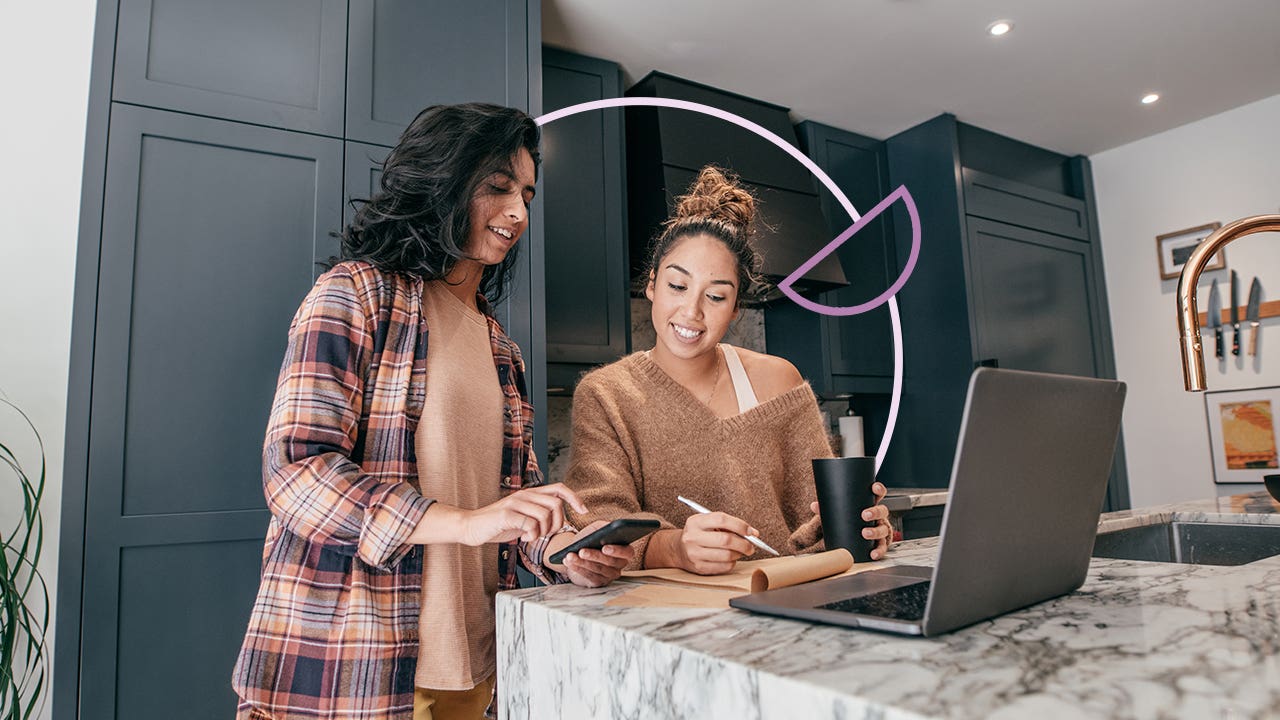What is a buyer’s agent, and do I need one to buy a house?




Key takeaways
- A buyer’s agent is a real estate agent who specializes in helping buyers navigate the homebuying process.
- Buyer’s agents are different from listing agents, who represent the seller in a real estate transaction.
- While no one is required to hire an agent to buy real estate, most house-hunters do use their expertise to navigate the process.
Are you hoping to purchase a home soon? There’s a lot to think about, especially in today’s shifting market, and finding a perfect house that you can afford can be like finding a needle in a haystack.
Luckily, you don’t have to navigate the process on your own. A local real estate agent who specializes in helping buyers find the right home, often referred to as a buyer’s agent, can be a crucial help. Read on to learn what buyer’s agents do, how much money they make and whether you need one for your home search.
What does a buyer’s agent do?
Typically, real estate transactions involve two different agents: one who represents the seller and one who represents the buyer. The role of a buyer’s agent is to act as the homebuyer’s guide on their real estate journey. Their primary responsibility is to help house-hunters find the home that best suits their needs and budget, ticking as many boxes as possible on their wish list. A buyer’s agent performs several other duties as well, including:
- Handling required paperwork
- Drafting and submitting offers
- Assisting with negotiations
- Coordinating the closing process
- Smoothing over bumps in the road and keeping things moving
If you see the initials ABR after a Realtor’s name, that stands for Accredited Buyer’s Representative — a special certification designated by the National Association of Realtors (NAR). You don’t necessarily need an agent with the ABR designation to buy a house, but those who have it have received special training in being an advocate for homebuyers.
Buyer’s agent vs. listing agent
While a buyer’s agent represents the buyer, listing agents work on the other side of the real estate transaction. They represent the seller and are responsible for listing the property for sale (hence the name) and positioning it to attract top dollar. Listing agents also host open houses, help sellers sift through offers and negotiate on the seller’s behalf.
Somewhat confusingly, the seller’s agent or listing agent is not the same thing as what’s often called a selling agent. In fact, quite the opposite: Once a property goes into contract, the buyer’s agent may now be referred to as the “selling agent.” Regardless of terminology, though, your agent is still yours, and still working on your behalf.
Depending on where you’re hoping to buy a home, there is a chance that your agent could represent both you and the seller of the property. It’s called dual agency, and it’s permissible in some states.
Do I need a buyer’s agent to buy a house?
You are not legally required to hire a real estate agent in order to buy a house. You always have the option to find a home and negotiate the terms of the purchase on your own. However, it’s not the preferred method for the vast majority of homebuyers. According to the NAR’s 2025 Home Buyers and Sellers Generational Trends Report, 88 percent of buyers purchased their homes with the help of an agent or broker.
It’s in your best interest to do so for several reasons. For starters, a real estate agent with extensive knowledge about your local area can give you a competitive advantage in finding and bidding on homes. This is especially true in areas where inventory is extremely limited, as is the case in many markets around the country.
Having an expert on your side also provides assistance with the purchase agreement. Clauses, disclosures and contingencies can be confusing, and you’ll want someone who understands them to make sure they work in your favor. An agent can also help you negotiate potential seller concessions if the inspection reveals issues with the home. Most importantly, you’ll receive professional advice and answers to any questions you may have.
Signing a contract
After a recent lawsuit regarding real estate commissions (more on that below), you’re going to need to sign a contract with an agent before touring any property that specifies how much they’ll be paid. The rest of the contract may include additional language about how long the agent will represent you and other details. Since contracts can be confusing, you may want to consult with a real estate attorney who can help you make sense of the agreement.
How does a buyer’s agent get paid?
Real estate commissions typically amount to between 5 and 6 percent of a home’s sale price, split evenly between both agents involved in the transaction. On a $400,000 home sale, 5 percent comes to $20,000, or $10,000 for each agent. Compensation for both agents has long been paid by the seller, out of their sale proceeds, meaning the buyer does not pay their agent out-of-pocket (though the expense may be “baked into” the home’s sale price).
Impact of NAR commission lawsuit on payment structure
Ask most real estate agents about commissions, they will tell you that those fees have always been negotiable. However, that didn’t always feel like the case, as the unofficial rule essentially dictated that a seller covered their agent’s commission and the buyer’s agent’s commission. After the NAR settled a series of lawsuits related to seller commissions in 2024, though, it’s no longer a given that sellers will pay the fee. Instead, buyers must sign a contract with an agent that spells out how they will be paid, which is a new piece of the homebuying puzzle.
While you’ll need to be prepared to put your autograph on that contract, it remains common for sellers to cover the buyer’s agent’s commission in most markets around the country. Still, you should be prepared to talk with your agent about their typical commission, and have them ask the listing agent of any property you’re considering if the seller is willing to cover the cost. If you aren’t prepared to pay for the cost out of pocket, you may want to limit your search solely to the sellers who will cover your agent’s fee.
How to find a buyer’s agent
There are a lot of real estate agents out there — NAR has more than 1.5 million members, along with other licensed agents who do not belong to the association. How do you find an agent who is right for you? Asking around for recommendations is a great place to start. According to NAR research, 40 percent of buyers found their agent via a referral from a friend, neighbor or relative. “Speak to friends, ask local business owners and look out for signs on the street,” says Dennis Shirshikov, head of content at real estate site Awning.
If you see “sold” signs in your desired neighborhoods, reach out to the agents who brokered those sales. You can also search online for agents who’ve successfully closed transactions where you’re looking to buy.
Once you have a list of names, narrow it down by doing some online research. Then pick three or four to interview, asking plenty of questions to determine how each one works and how they would help you find what you’re looking for. You want someone you click with and can work well with. “Look for responsiveness and communication skills,” Shirshikov says. “If communication skills are poor, and you keep missing each other on calls and emails, you’re unlikely to buy a property [together].”
It’s also important to ensure they can handle any potential issues that may arise. “Ask the agents you are interviewing to discuss some difficult situations they faced with past clients,” Shirshikov says. “If the agent responds in a positive way and puts the client first in disputes, that’s an agent to stick with. If they have never encountered tough situations or have handled them poorly, look for someone else.”
Bottom line
Buyer’s agents play an essential role in the homebuying process, especially for a novice or first-time buyer. An experienced local agent can help make finding a home, submitting offers, negotiating favorable terms and getting to the closing table a smoother experience.
Why we ask for feedback Your feedback helps us improve our content and services. It takes less than a minute to complete.
Your responses are anonymous and will only be used for improving our website.
You may also like

How much house can I afford with a $180K salary?

What is a Realtor, and do I need one?


